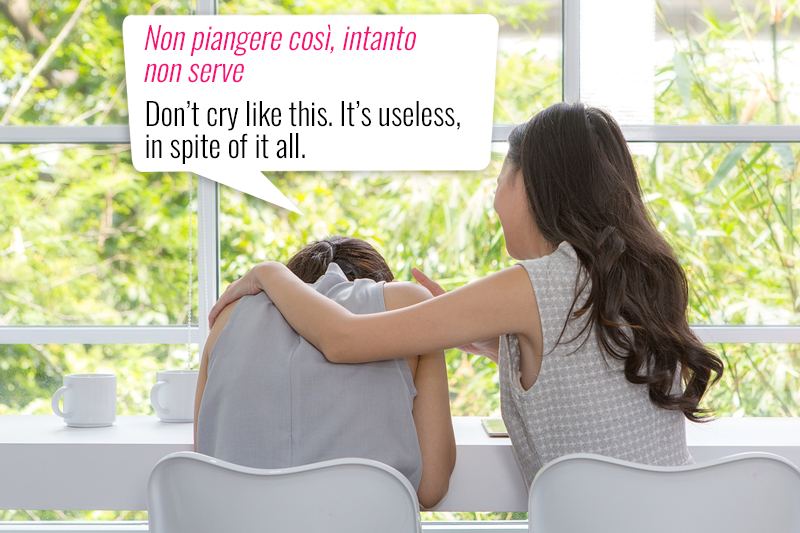Intanto (een-tahn-toh), il nuovo anno è incominciato. This little sentence is perfect to explain how our word of the day works. Let’s see why.
You can translate the sentence above in two different ways, based on the meaning you decide to give to intanto: “meanwhile, the new year began,” or “in spite of it all, the new year began.” How different they are! In the first case, intanto has a temporal value, it just tells us that the new year started while other things were happening; in the second case, on the other hand, it tells us how the new year arrived, in spite of what was taking place around.

There are other examples to show intanto’s variations of meaning: think of when you were a kid, and you would ask for, let’s say, a slice of chocolate cake while you were eating supper. What would your mother say? Intanto finisci la cena, poi vediamo, “Meanwhile, finish your dinner, then we’ll see”— needless to say, you’d more often than not get the cake, right? And what about the most popular of all new year’s resolutions, going on a diet: what do we say after a couple of weeks of healthy eating and zero weight loss? E’ inutile stare a dieta, intanto il peso non lo perdo, “dieting is useless: I’m not any losing weight, in spite of it.”
We haven’t forgotten about our bit about the etymology of the word: intanto is the compound of the preposition in and the adverb tanto, and was introduced in our language sometimes in the 13th century, just in time for people like Dante and Petrarca to use it.
—Non piangere così, intanto non serve.
— Don’t cry like this. It’s useless, in spite of it all.
— Passa l’aspirapolvere, per favore. Intanto io preparo il pranzo.
— Hoover, please. In the meanwhile, I’ll make lunch.
— Ho studiato tantissimo per quell’esame, ma intanto non l’ho passato.
— I studied so much for that exam, but I failed regardless.






























